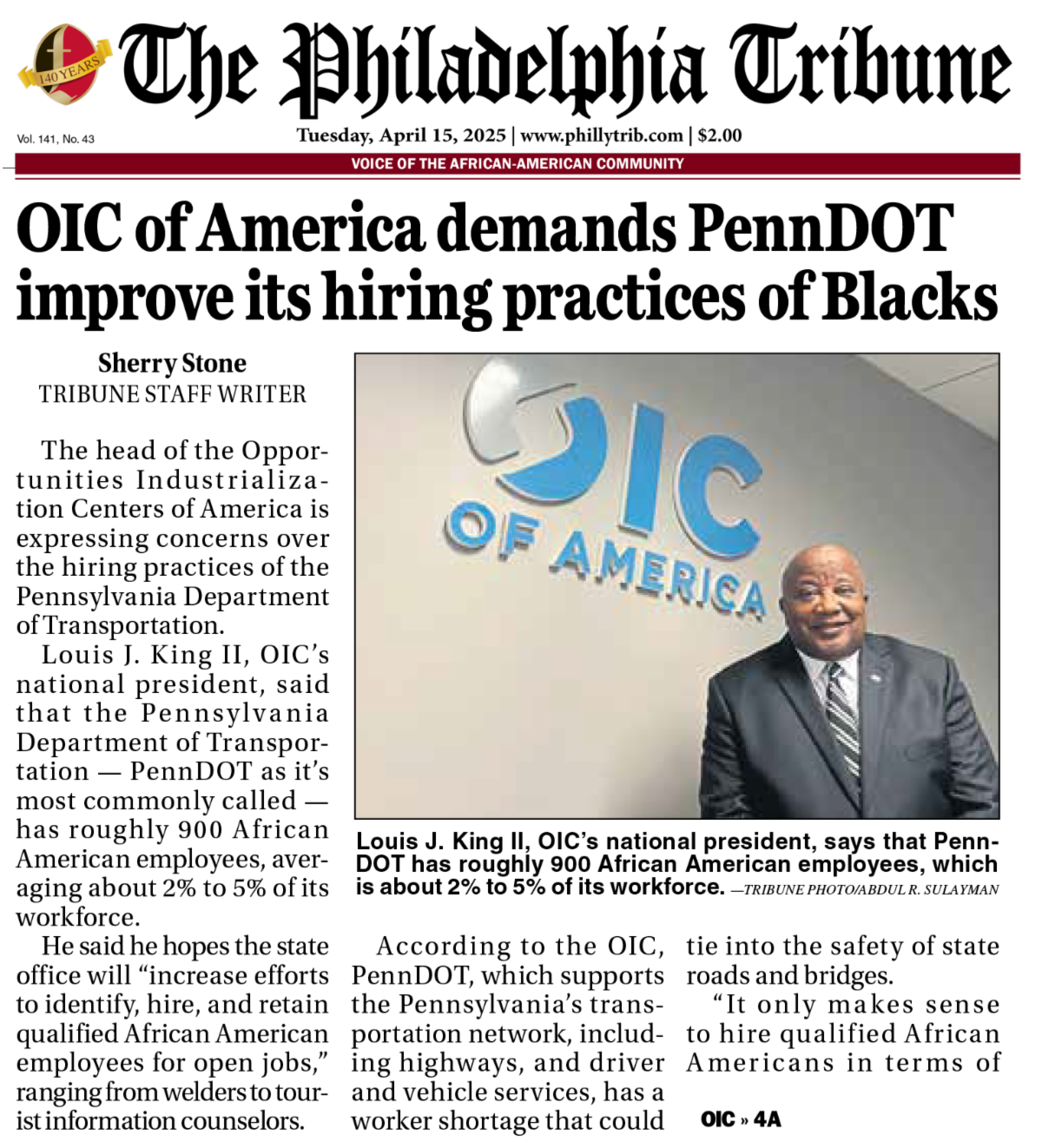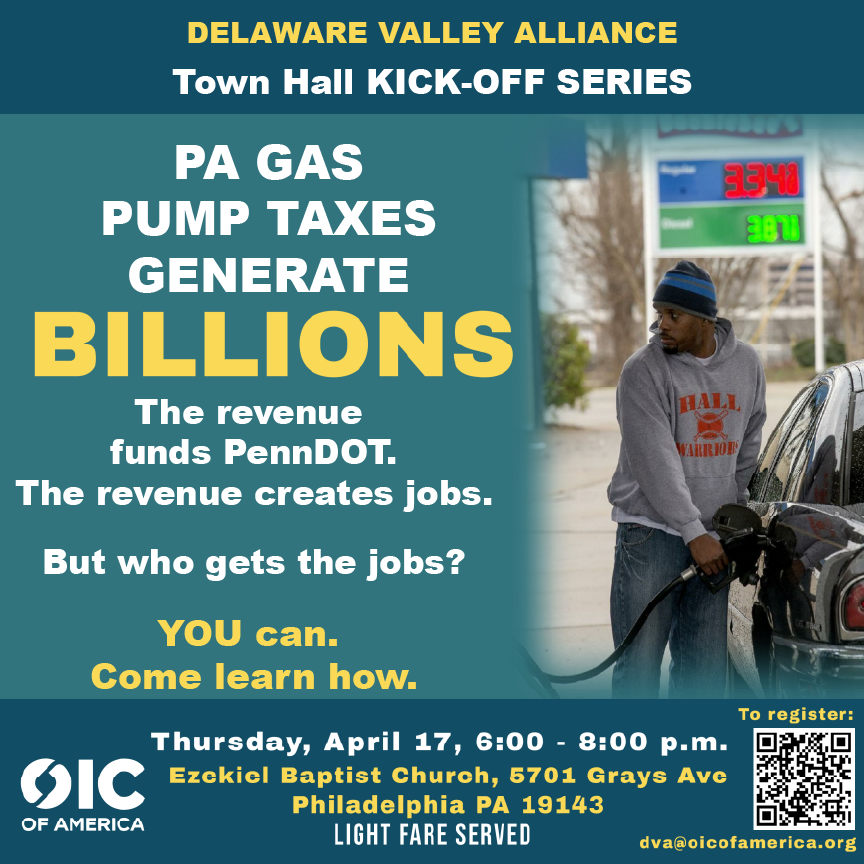
Louis J. King II, OIC’s national president, says that PennDOT has roughly 900 African American employees, which is about 2% to 5% of its workforce.
The head of the Opportunities Industrialization Centers of America is expressing concerns over the hiring practices of the Pennsylvania Department of Transportation.
Louis J. King II, OIC’s national president, said that the Pennsylvania Department of Transportation — PennDOT as it’s most commonly called — has roughly 900 African American employees, averaging about 2% to 5% of its workforce.
He said he hopes the state office will “increase efforts to identify, hire, and retain qualified African American employees for open jobs,” ranging from welders to tourist information counselors.
According to the OIC, PennDOT, which supports the Pennsylvania’s transportation network, including highways, and driver and vehicle services, has a worker shortage that could tie into the safety of state roads and bridges.
“It only makes sense to hire qualified African Americans in terms of safety and eliminating a worker shortage,” King said.
The organization, founded by the late civil rights leader the Rev. Leon Sullivan, is scheduled to host meetings in Philadelphia, Chester and Norristown in the coming weeks.
When contacted, representatives from PennDOT did not respond to the allegations by the press time.
Jeffrey Barg, OIC’s director of communications, said the organization’s first meeting is planned for Philadelphia on Thursday at The Ezekiel Baptist Church in Southwest Philadelphia at 5701 Grays Ave., from 6 p.m. to 8 p.m.
A second meeting, regarding hiring and retention at PennDOT will follow a week later, in Chester on April 24. OIC leaders will meet again May 1 in Norristown and two weeks later in North Philadelphia on May 15. Locations for the later meetings have not been finalized.
“Many presidential administrations pride themselves on infrastructure investments. If a tornado comes through, you’ve got to rebuild,” King said. “If a bridge collapses or a road is unserviceable, you’ve got to fix it so that you can have routes for people to commute and allow for goods to move.
“This adds up to huge amounts of money that are exchanged on a regular basis,” he added. “Further, when there’s an economic downturn, stimulus packages often have infrastructure projects in them. And then finally, the other thing that makes them recession-proof is that it takes years in the making for many of these projects to get them through the pipeline. So let’s say you started getting the authorization for some roads here in Philadelphia County three years ago. Well, if the bottom falls out of the economy tomorrow, those projects are going to continue. They’ve been authorized. They’re going to happen. In the midst of all of those billions of dollars, it begs the question, who gets the money in the Commonwealth of Pennsylvania.”
In Pennsylvania, PennDOT finances its roads through a heavily regressive gasoline tax, according to the OIC. Roughly, 78% of the funds dedicated to roads come from the gas tax, the organization said, which is a much larger percentage compared to surrounding states, which are for the most part, in the 20 percentile range.
“In this instance, we find that over 16% of the income of a low-income household goes toward gasoline,” King said. “Fuel, while for people with money, affluent people, it’s in a 2% range. So when you look at all of this money being spent, 78% gas tax, 16% of the household income. Well, who gets the money?”
African Americans make up about 12% of the state of Pennsylvania and represent about a third of the people in Philadelphia, King said. For this, he said there should be greater representation of African Americans in PennDOT’s workforce.
During a five-year period, PennDOT statistics show that white workers who normally dominated, dropped from over 80% to slightly over 60%.
“There’s a worker shortage out there, and it’s only going to get worse,” King said. “So what this implies is a few things. No. 1, we need greater transparency on the workforce composition of PennDOT.”
King said the organization is analyzing how PennDOT has been performing in terms of reaching all communities that had people that were paying the gas tax. He said he hopes to make the Pennsylvania Black Legislative Caucus aware of these issues.
“It’s not something that’s measured and reported,” King said. “We have to change this, because we elect representatives to represent our interests at the capital, and the primary interests of any family, first and foremost, is to be able to earn a living and take care of themselves. Elected officials pride themselves on bringing resources and jobs to their community. So in this instance, we are giving them a powerful tool that doesn’t require permission.”

